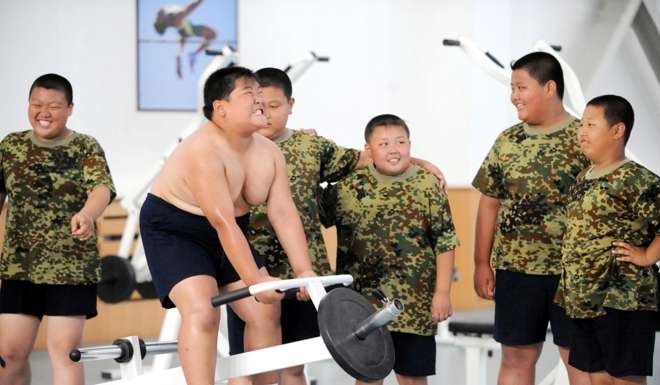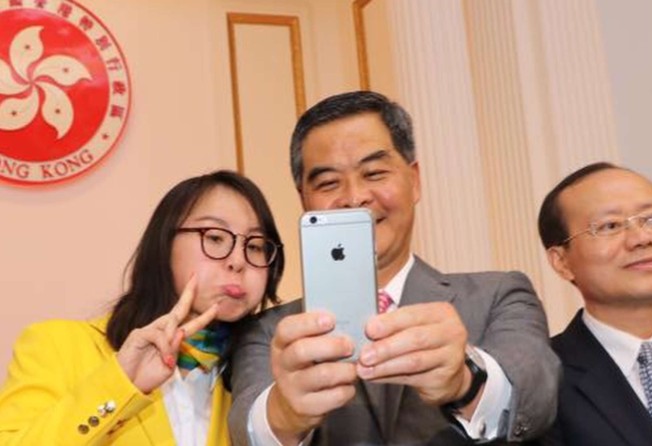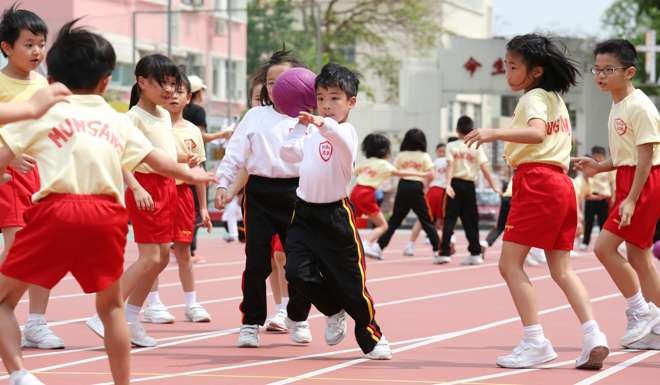
Will China’s plan to get everyone in the country exercising make an impact on Hong Kong?
Our young people get less exercise than prisoners and our politicians, parents and teachers are blind to the benefits of a sports culture – but the bosses in Beijing might convince 2017’s CE candidates of its merits

Assuming President Trump hasn’t reduced China to smoking ash by March, Hong Kong will be having its own “election”. Given China’s recent policies, whoever Beijing picks for chief executive might have to pay more than lip service to sport.
After 2014’s oft-discussed forecast/demand that the mainland’s sports industry become a key part of the economy, the government is launching phase two. The State Council has issued several proclamations ordering authorities as well as “market players in the industry” to implement far-reaching plans to get the public actively engaged in sport and exercise at an unprecedented level.
On Thursday Yang Shuan, the Deputy Director of the State Administration of Sports declared at a Party work conference that the National Fitness Programme was an “important national strategy”.
That plan demands that 700 million people take part in exercise at least once a week by 2020. It mainly targets young people and ties in with another initiative, ‘Healthy China 2030’, and the sports industry transformation. Sport is to be a key part of education and the community, with everyone within 15 minutes of a sports facility; the sports economy will naturally boom.

What does this have to do with Hong Kong? We still have our own government and policies after all. Maybe for a bit longer anyway. Well, whoever the mandarins deem suitable to “run for election” in 2017, surely it will be politic for them to support China’s grand sporting and fitness ambitions.
That has not been the case in the past, although CY Leung did devote four pages of his manifesto to sport in 2012. Most was pablum though there was one concrete policy he enacted, the appointment of a sports commissioner. Surely he and opponents will need more in-depth plans in March.
Studies regularly confirm the disdain for exercise from Hong Kong residents: over half fail to meet the “baseline indicator” of physical activity level, one found; another said that a third of adults had not done any exercise in the week before the survey.
Young people, told by parents and teachers that the only point of life is to study, are less fit than their already unfit mainland peers and get less time outside than prisoners, a disgrace. Unsurprisingly their mental health suffers and youth suicide is a massive issue. Ironically, as study after study has pointed out, exercise and fitness actually helps youngsters get good grades.

“What Hong Kong has is a complete lack of sports culture and sports vision,” Brian Stevenson, former president of the Hong Kong Rugby Union and chairman of the Jockey Club, told me last week.
“So many good things come from sport and people learn to work together, they respect each other, they’re healthy. It ties into your tourism for major events, it ties into health because all your people are a lot healthier keeping the bills down, and most importantly it develops team spirit.”
Its an obvious truth and a drum the likes of Stevenson have been banging in the ears of government officials for decades. But how do we inculcate such a sports culture where none exists?
“I don’t think it would be hard to establish the framework – if you had a minister for sports, not just the sports commissioner, with a brief and ability to cross into the other departments, health, education, facilities, the LCSD,” said Stevenson.
He feels that Yeung Tak-keung, the new sports commissioner, is doing a “good job” but his brief is limited towards getting the Kai Tak Sports Park built.
“It’s all to do with getting that message home that this makes a better citizenry and it’s better for your young people and they’re healthier. What I’m talking about would have to come from the top, it would be part of somebody running for CEO, part of their manifesto.”
At the moment sport is an unwanted stepchild in the Home Affairs Bureau. “It’s an enormous department that covers everything – too much,” added Stevenson, “and with the utmost respect, no matter how much interest they might show they’re not sports people up at the top for goodness sake. You should have a sport minister who is a sports person who understands sports.”
It makes perfect sense, but will any of the 2017 candidates make a dedicated sports ministry part of their manifesto? Hopefully a nudge from their bosses in Beijing will help.